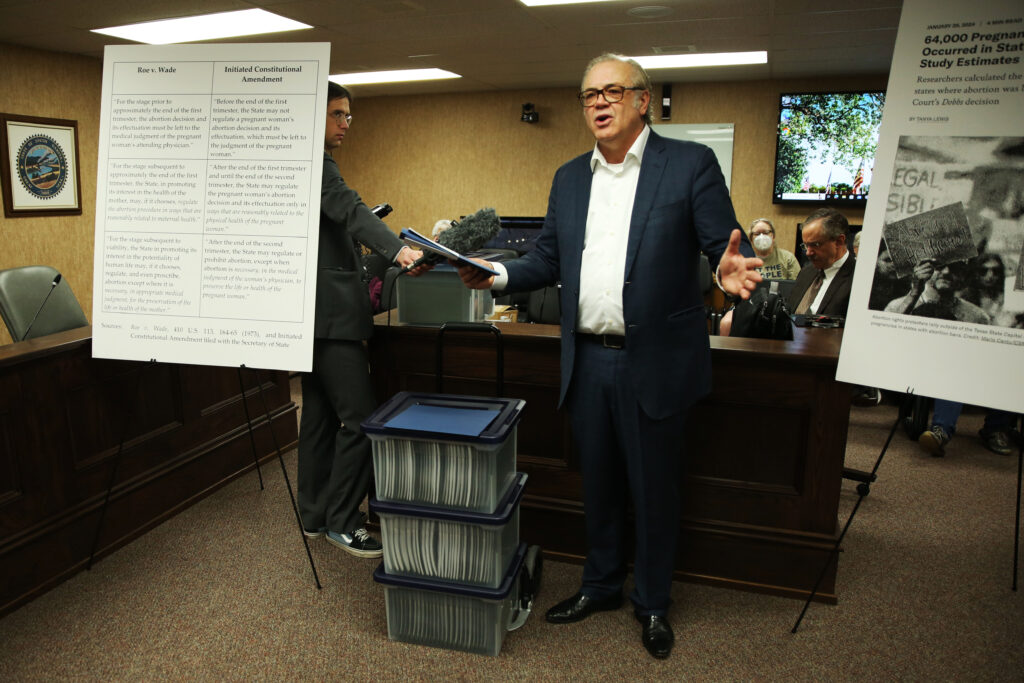Dakotans for Health Chairman Rick Weiland, standing beside signed petitions, speaks to the press on Feb. 7, 2024, at the Capitol in Pierre about an initiated constitutional amendment to enshrine abortion rights in the state constitution. (Makenzie Huber/South Dakota Searchlight)
The state of South Dakota could be forced to pay at least $74,000 in attorney fees for a group that’s suing to protect a longer circulation period for ballot-question petitions.
The two parties reached a settlement on attorney fees last week. The agreement says the state will pay $74,000, plus interest at a rate of 3.64%, if the Dakotans for Health ballot question committee remains the winner of the lawsuit.
The state is appealing a federal judge’s September order. The order prohibits the state from enforcing a new law that moves the election-year filing deadline for ballot-question petitions from May to February. That would shrink the circulation window by three months and, according to the judge, violate petitioners’ First Amendment rights.
The law enforcing the earlier deadline started as legislation last winter from state House Speaker Jon Hansen, of Dell Rapids, who is one of several Republican candidates for governor next year.
The filing deadline dictates the amount of time petitioners have for gathering signatures to put a question on the statewide ballot. Petitioners need 17,508 signatures from registered voters to propose a law, which is known as an initiative, and the same number of signatures to put a bill passed by legislators on hold for consideration by voters, which is known as a referendum. The number of signatures required to propose a state constitutional amendment is 35,017.
Dakotans for Health, which has worked on numerous ballot-question campaigns, is represented in its lawsuit by attorney Jim Leach, of Rapid City. The state is represented by Assistant Attorney General Grant Flynn.
The litigation is part of a broader struggle over citizen lawmaking. Numerous Republican legislative efforts to restrict ballot questions in recent years have come in response to voter approval of measures that raised the minimum wage, expanded Medicaid eligibility and legalized medical marijuana, among others.
Get campaign news delivered: Sign up for our free newsletter.





